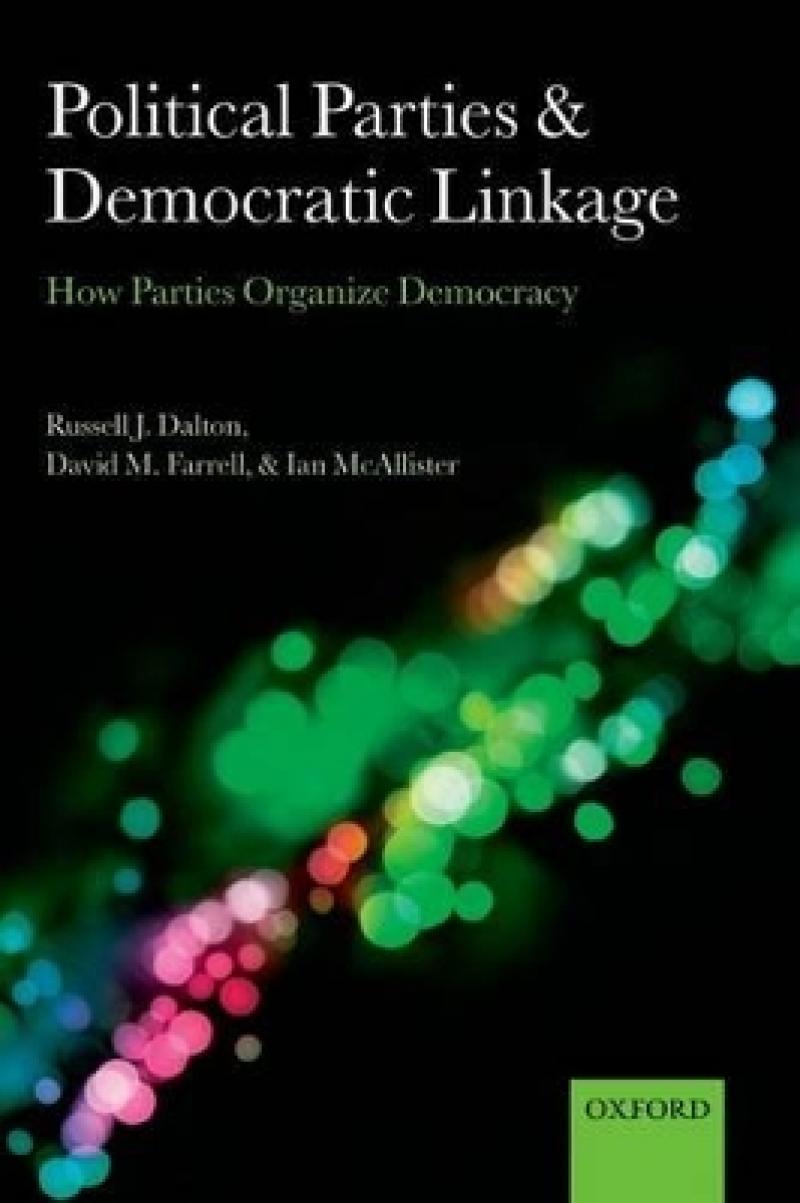Is the party over? Parties are the central institutions of representative democracy, but critics increasingly claim that parties are failing to perform their democratic functions. This book assembles unprecedented cross-national evidence to assess how parties link the individual citizen to the formation of governments and then to government policies. Using the Comparative Study of Electoral Systems and other recent cross-national data, the authors examine the workings of this party linkage process across established and new democracies. Political parties still dominate the electoral process in shaping the discourse of campaigns, the selection of candidates, and mobilizing citizens to vote. Equally striking, parties link citizen preferences to the choice of representatives, with strong congruence between voter and party Left/Right positions. These preferences are then translated in the formation of coalition governments and their policies.
The authors argue that the critics of parties have overlooked the ability of political parties to adapt to changing conditions in order to perform their crucial linkage functions. As the context of politics and societies have changed, so too have political parties. Political Parties and Democratic Linkage argues that the process of party government is alive and well in most contemporary democracies.
Les mer
Political Parties and Democratic Linkage examines how political parties ensure the functioning of the democratic process in contemporary societies. Based on unprecedented cross-national data, the authors find that the process of party government is still alive and well in most contemporary democracies.
Les mer
PART I: INTRODUCTION; PART II: PARTIES AND ELECTION CAMPAIGNS; PART III: ELECTORAL CHOICE; PART IV: PARTIES IN GOVERNMENT; PART V: CONCLUSION
This is a book that will become a key reference point.
`Review from previous edition Political Parties and Democratic Linkage offers a valiant defence of the often lamented role of parties in contemporary democratic processes. Dalton, Farrell and McAllister argue that despite their poor public image, parties still dominate elections, that newly incumbent governments are more closely connected to citizen preferences than their predecessors in office, and that voter opinion, operating through parties, matters for
policy outputs. This is an important book for students of parties as well as for students of democracy.'
Peter Mair, Late Professor of Comparative Politics, European University Institute, Florence
Les mer
Winner of the 2012 GESIS Klingemann Prize for the Best CSES Scholarship
Third volume from the world renowned Comparative Study of Electoral Systems program
The authors are three of the leading experts on parties and electoral politics
Provides cross-national breadth
Uses a common empirical database that produces comparability and coherence in the analyses
Les mer
Russell J. Dalton is the founding director of the Center for the Study of Democracy at UC Irvine. Dalton has been awarded a Fulbright Research Fellowship, Scholar-in-Residence at the Barbra Streisand Center, German Marshall Fund Research Fellowship, and the POSCO Fellowship at the East West Center in Hawaii. He is a Professor of Political Science at the University of California, Irvine. David M. Farrell is a specialist in the study of parties and electoral systems,
he is founding co-editor of Party Politics and co-editor of the ECPR/Oxford University Press series, Comparative Politics. He is Professor of Politics and Head of the School of Politics and
International Relations at University College Dublin. Ian McAllister has been director of the Australian Election Study since 1987, and was Chair of the Comparative Study of Electoral System project from 2004 to 2009. He is a Fellow of the Academy of Social Sciences in Australia and a Corresponding Member of the Royal Society of Edinburgh. He is Distinguished Professor of Political Science, Australian National University.
Les mer
Winner of the 2012 GESIS Klingemann Prize for the Best CSES Scholarship
Third volume from the world renowned Comparative Study of Electoral Systems program
The authors are three of the leading experts on parties and electoral politics
Provides cross-national breadth
Uses a common empirical database that produces comparability and coherence in the analyses
Les mer
Produktdetaljer
ISBN
9780199674961
Publisert
2013
Utgiver
Vendor
Oxford University Press
Vekt
386 gr
Høyde
234 mm
Bredde
178 mm
Dybde
15 mm
Aldersnivå
UU, UP, P, 05, 06
Språk
Product language
Engelsk
Format
Product format
Heftet
Antall sider
258
